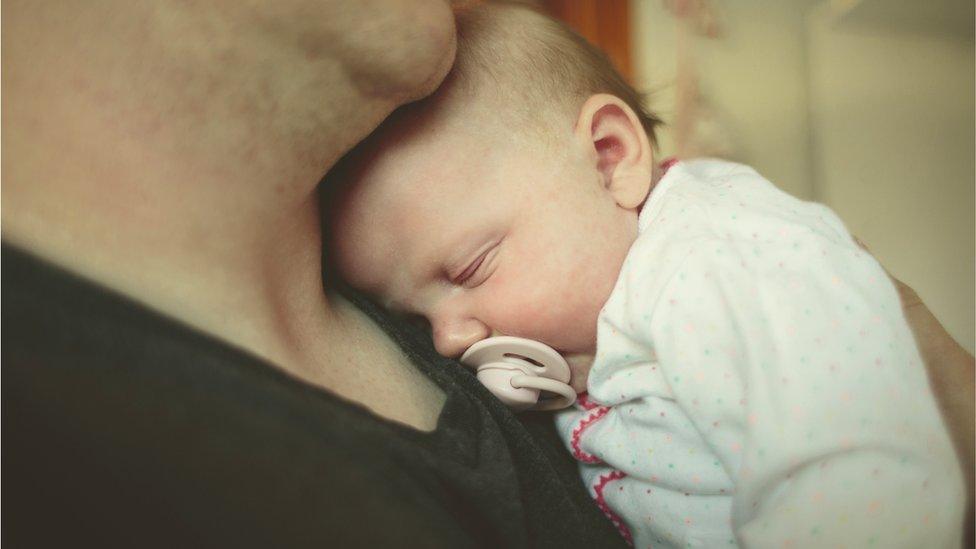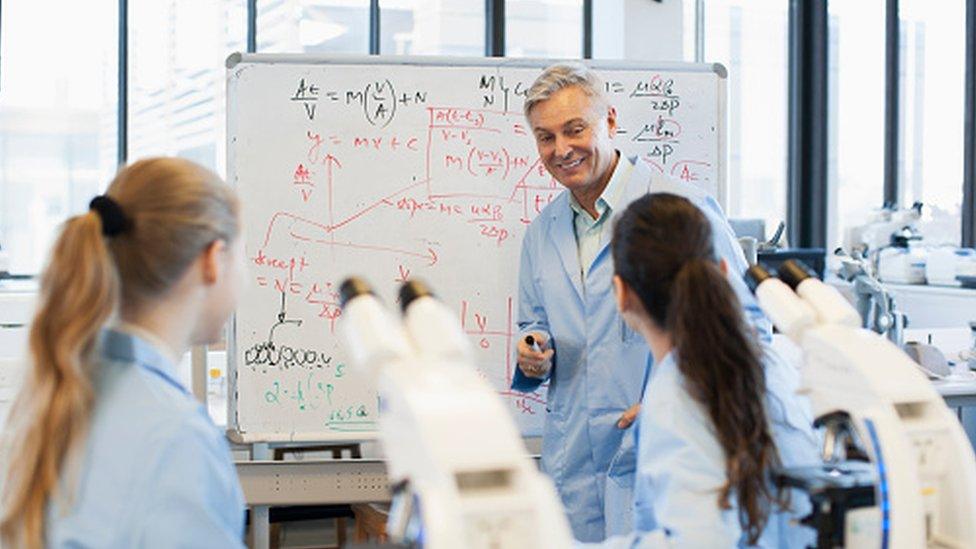Budget about investing in public services - Sunak
- Published
Rishi Sunak tells Andrew Marr the Budget will see investment in public services
Chancellor Rishi Sunak has said "strong investment in public services" will be at the heart of his plans for rebuilding the economy when he sets out his Budget next week.
Speaking on BBC One's Andrew Marr Show, he said he would drive growth by spending on infrastructure, innovation and skills.
But he said he did not have a "magic wand" to make rising costs disappear.
Labour wants VAT on energy bills to be cut to zero to help families.
Shadow chancellor Rachel Reeves, who was speaking on the same show, said many households were facing a "tough winter", and were worried about putting food on the table and heating their homes because prices were going up "on everything".
Mr Sunak will set out his Budget on Wednesday, amid concern among some in his own party too that rising energy prices, inflation and tax hikes are causing a cost of living crisis in the UK.
'Elected to deliver'
Speaking to the BBC, the chancellor said his previous budgets had been about taking action to protect incomes and jobs, but it was now time to look to the future and reshape the economy.
He said: "One of the elements of building a stronger economy is having strong public services, and you will see that next week - whether it's the NHS, which we've already taken steps to support significantly to recover from coronavirus - children, schools, skills, all of these things, policing and crime.
"You will see investment across the board in public services because that's what we were elected to deliver and that's what we are getting on and doing."
Asked if he would raise public sector wages in line with inflation, the chancellor said "that will be one of the things we talk about".
"Over the past year, we took a decision to have a more targeted approach to public sector pay," he continued, but "going forward we'll have to set a new pay policy and that'll be a topic for next week's spending review".
He said there was "no magic wand" to make the factors contributing to high inflation disappear - such as pressure on global supply chains as economies have reopened after Covid, and soaring energy prices.
And while his "instincts" were to cut tax, Mr Sunak said he was having to grapple with "an economic shock - the biggest in three hundred years."

Investment already announced:
£7bn for areas outside of London to "level up" transport
£5bn for health-related research and development, including towards genome sequencing and tackling health inequalities
£3bn to drive a "skills revolution"
A £1.4bn fund to funnel money into key innovative sectors and a new talent network to woo foreign talent into UK industries
£850m to "breathe life" back into cultural hotspots
£700m for a new fleet of patrol boats for Britain's borders
£700m to improve sports and youth clubs
£560m to provide personalised maths coaching
£500m towards support for families and children, including new family hubs
£435m for crime prevention and the Crown Prosecution Service, part of which aims to improve the response to rape and sexual assault cases
£5m for cutting-edge treatments for veterans

But shadow chancellor Rachel Reeves said immediate help was essential and ministers needed to match their rhetoric with action.
"People are facing a tough winter now with prices of everything going up, not least gas and electricity bills," she said.
"When we pay our gas and electricity bills, 5% of that money goes automatically to the taxman.
"There's something very simple the government could do. It would be immediate and it would be felt automatically on people's bills next month - and that is to cut that rate of VAT from 5% to 0%."
She said she had been looking at VAT receipts and they had come in more than £2bn higher than forecast because of rising prices, giving the chancellor some wriggle room to act.
"Let's use that money to ease that pressure on people who are worried about the winter months, worried about putting food on the table and heating their homes" she added.
And she said Labour would not have made the "appalling" cuts to universal credit payments which came into force earlier this month.
Related topics
- Published22 October 2021

- Published23 October 2021

- Published24 October 2021
